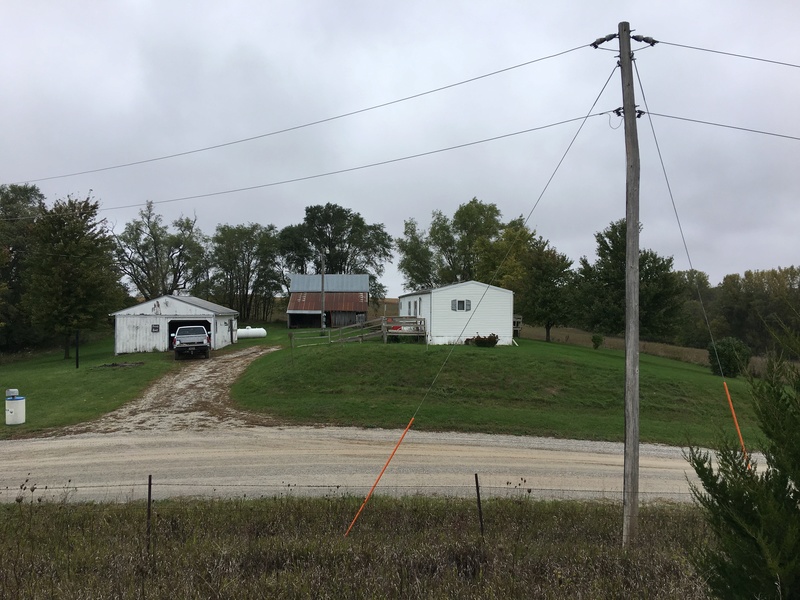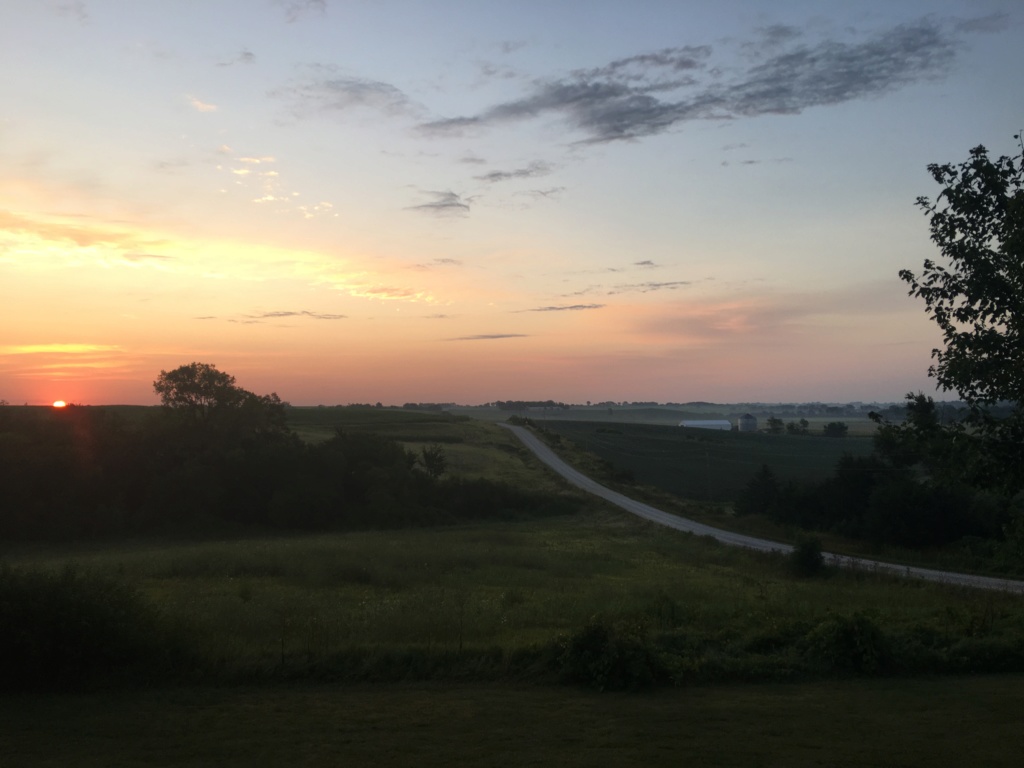Mobile homes are typically not very well insulated. https://www.youtube.com/results?sear...TE+MOBILE+HOME
has some good videos on how to do it, good luck!
Try our solar cost and savings calculator
Imagine if you had just bought a solar system in Iowa..
Collapse
X
-
Currently in my area net metering is 1 to 1 and electricity is super cheap anyways. No tou pricing ect. Not alot of solar installs but for how long? The thought of the rule changes being a possibility has definitely crossed my mind. I just think in that scenario I'm going to make my own powerwall. Probably need to get different inverters and basically pretend like I'm off grid. I can shut my power off at the meter. If the power company wants to play a game where they want to charge me for per kw of solar I have (which is ridiculous btw) then they can disconnect me completely. I'll just keep buying panels and batteries until I can power my house for a week plus of clouds and then use the generator in a pinch. I mean seriously inverters have the ability to be placed in self consumption mode with batteries ect. How can the poco charge you per kw of solar on your roof if you're not sending excess to the grid? I'd be losing my mind.Leave a comment:
-
If you are building a house, nothing wrong with super insulation. But converting an older
house to that level of insulation will be extremely difficult. Those of us in a house are
not likely to tear them down. Still you will need some energy to cover losses. With
PV solar you can cover that loss and get to zero net energy use. But with the older
house the best trade off is perhaps a lot more solar and a lot less insulation.
The only practical way to convert your summer collected PV energy to winter heat, is
net metering. A useful measure is that a gallon of propane is equal to about 27KWH
of electricity. That means a 10 cent KWH can directly compete with a $2.70 gallon of
propane using resistance electric heat. With the prop suppliers desperately trying to
export as much as possible and create an artificial mid winter price twice that, you
are better to electrically heat.
But if you use a heat pump with negative temp capability and a COP of 3, you can
compete with $0.90 a gallon propane. And of course, air condition very cheaply with
the same equipment. Still this falls short of natural gas, for now. Bruce RoeLeave a comment:
-
HF669 and SF583 would charge solar owners more each month just because they have solar panels.
Ask your state representative to oppose SF583 and HF669. This legislation would allow MidAmerican and Alliant to put expensive charges on your bill if you own solar panels. What's more, this legislation would create complex billing schemes. The only purpose of this legislation is to discourage anybody from putting solar panels on their property. Even worse, the utility would not pay a fair amount for the electricity that is delivered to the grid.
I even wrote my legislators and I don't even own solar. I'm appalled! You folks should to, because this may happen to your state if it happens here.
https://www.sierraclub.org/iowa/blog...f669-and-sf583
Last edited by rebar; 08-12-2019, 08:49 PM.Leave a comment:
-
Exactly.. Super insulated Shouse where the barn is. I wish the mobile home was gone, but GF lives there now.It is almost always cheaper to buy more insulation in the long run. My local energy company has a home effcicency program, they cam out with one of those infrared cameras and showed me where my ceiling lights and speakers needed more insulation. I bet your local utiity company has a similar program.
 The leading newsroom covering the transition to clean energy, electrification and climate solutions. We report on how the world is decarbonizing with a…
The leading newsroom covering the transition to clean energy, electrification and climate solutions. We report on how the world is decarbonizing with a…

View from mobile home

Leave a comment:
-
It is almost always cheaper to buy more insulation in the long run. My local energy company has a home effcicency program, they cam out with one of those infrared cameras and showed me where my ceiling lights and speakers needed more insulation. I bet your local utiity company has a similar program.Leave a comment:
-
at your site in Iowa, do you get a lot of snow that would cover panels in winter ? Clear skies ? Cloudy skies. If it was simply clear and cold, and not a lot of snow to shovel off the PV panels, it might be worth looking into.Leave a comment:
-
using solar PV for heating is typically a bad idea. Mitsibushi makes some cold weather heat pumps, you might investigate that, not sure if it would be cheaper than propane in your climate.Leave a comment:
-
Thanks guys..
The majority of my utility bill at my bug out property in Iowa is propane during the winter. I was wondering if solar could be used if I outfit the house all electric appliances since I have a acre of space. I would have to generate more than I used and then buy it back at night imo. But without net metering it would be even more expensive than propane to heat. And also the fact winter solar produces less than summer make it a pipe dream.. Oh well..Leave a comment:
-
Not going to go far, car batteries are too dang expensive to have one in the car, and another on the wall.
The "Prius as a UPS" is likely the best scenario. Plug the smart car into the smart charger and let the utility manage the charge and discharge at night, as long as they leave you with 90% of battery in the AM. And likely to accelerate the car battery's demise, not covered under warranty.
Leave a comment:
-
No, it is more about when you use power. If you only use electricity when the sun shines you can self consume and it doesn't matter.
Yes, that is a real possibility.
this article states the combination of car battery tech with residential pv could really hurt utilities in the future, probabaly their way to slow the damage.
Leave a comment:
-
Isn't net metering only important if you generate more electricity than you use (not most installs)?
I guess if one uses more electricity at night instead of during the day, it could be a unbalanced situation. do not quite understand what is happening?
https://www.bloomberg.com/news/featu...the-power-grid
this article states the combination of car battery tech with residential pv could really hurt utilities in the future, probabaly their way to slow the damage.Leave a comment:
-
The end result could be a death spiral for those utilities. It may take a while and the respective states may have to bail them out along the way.
What they are doing with those pricing mechanisms is incentivizing load departure. For people that can afford it, it means self consumption of solar enhanced by battery storage. In many jurisdictions the user is free to do anything he wants to do behind the meter as long as it meets the building codes. I am not talking about disconnecting from the grid or going off grid.
Leave a comment:
-
I think it is Alabama, where you PAY the Electric Company a $5.00 FEE per kilowatt of installed Solar Panels, every MONTH they are connected to the Grid !
"Residential Break-even" under those terms is never ...Last edited by NEOH; 08-10-2019, 09:42 PM.Leave a comment:
-
Welcome to the real world where there's no guarantees. CA investor POCOs and the CPUC reduced residential PV cost effectiveness for new installs by about 25 % a couple of years ago and effectively by 15-25 % for all PV users by changing TOU rates and times and other measures. Other states/governing bodies have done similar to remove what some think is an unfair burdan placed on POCOs and their non PV customers by the PV industry and their customers.
I'd think of it as gov. mandated but temporary incentivization to get a fledgling PV industry started, and a situation that was never intended to be permanent in spite of what some may think.
Think of it as the party for PV coming to an end. Now, it's time for PV to stop dragging off the public tit, grow up and stand on its own. In the end, alternate energy as a way to carry its share of the energy generation load will be better and stronger for having been cut loose.
By way of some analogy, I learned how to ride a bike faster, better and safer than those who used training wheels.Leave a comment:
Copyright © 2014 SolarReviews All rights reserved.
Powered by vBulletin® Version 6.1.3
Copyright © 2025 MH Sub I, LLC dba vBulletin. All rights reserved.
Copyright © 2025 MH Sub I, LLC dba vBulletin. All rights reserved.
All times are GMT-5. This page was generated at 08:19 PM.
Leave a comment: